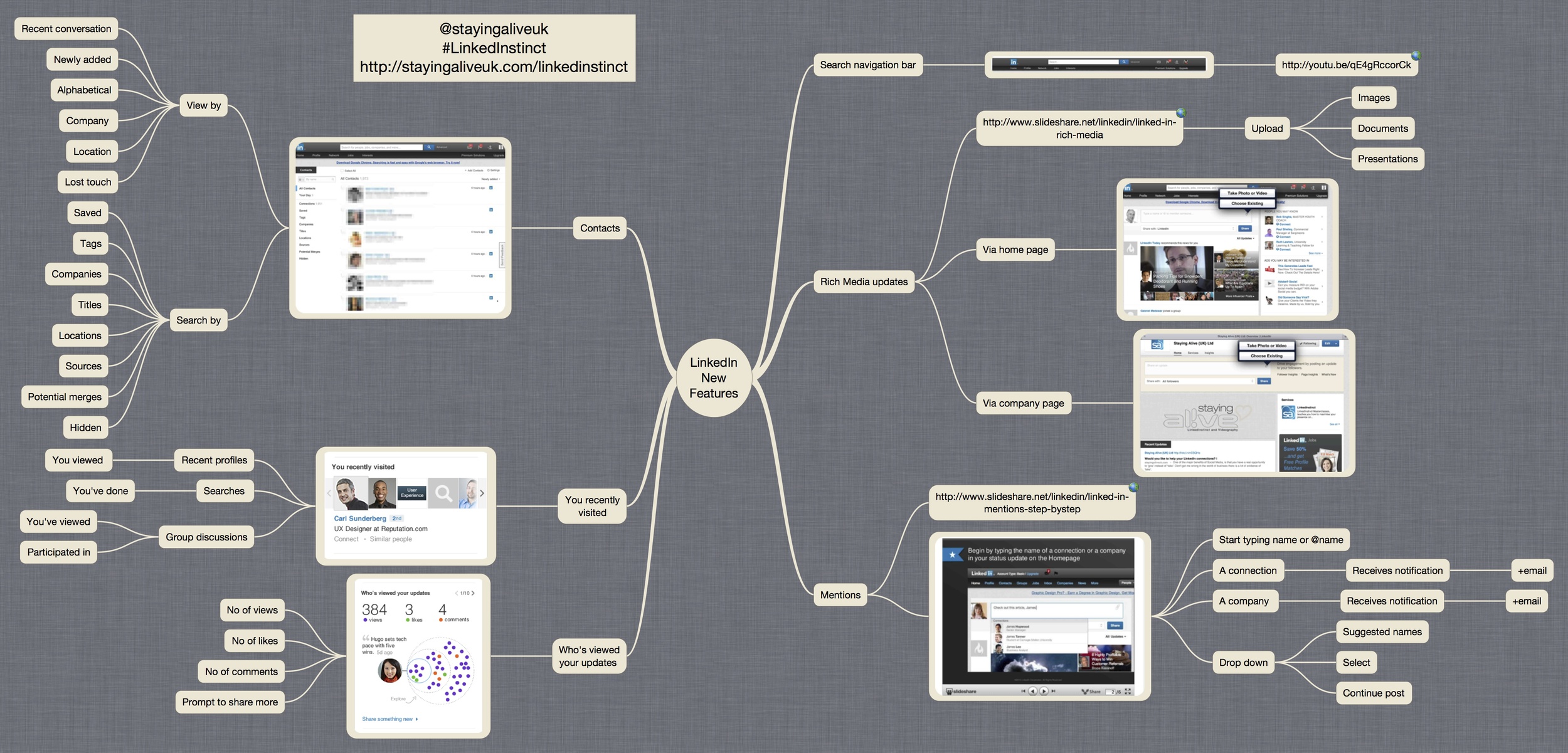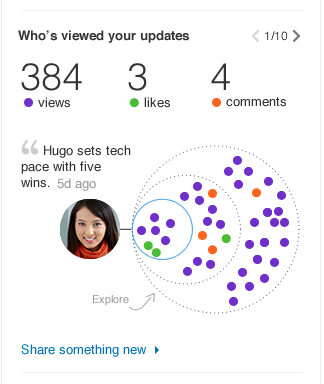I copied this thread from Jane Hart’s Social Learning Community http://c4lpt.co.uk/community and I felt it made such interesting reading and illustrates the debate that is taking place in organisations today about Social Media, Social Learning and how to embrace and engage these technologies.

Elliot R
My organization is just entering the informal learning and social media discussion. My position is that both topics should be addressed in the same conversation. This statement says it for me: "Social learning/media is simply informal learning facilitated by technology." Does anyone have data to support this? I have lots of excellent articles, and Jane's reference to this
http://www.danpontefract.com/?p=847 really helped. I am familiar with the 70/30/10 model as well. Anything else?
Charles J: Elliot, not to be pedantic, but social media, social learning and informal learning do describe different things. Unfortunately it's not black-and-white.
Social media is just that. Media that supports social interaction. In it's raw state in our market-driven world social media is usually as much focused on advertising as on learning.
Social learning is what I'd term 'learning through others'. Where interaction with others (colleagues, like-minded folk, our boss, people we meet on the street or in virtual environments like this) leads to new ideas and new behaviours. There is a school of thought that ALL learning is social. My view is that quite a lot is, and it's increasing with the proliferation of technologies, but there is some learning that is deeply personal and self-directed.
The 'informal' term is rather a catch-all. It's also slightly misleading as it can be taken as 'haphazard' and serendipitous. Some informal learning may be that, but a lot isn't. Informal learning is all learning that is not directed in a structured way. It can be social or it can be isolated learning (where you learn through practice, for instance). It may be accidental, but it's more likely to be highly directed.
Harold Jarche separates learning into a set of categories: directed/self-directed/undirected with learners (or workers) being dependent learners, independent learners or interdependent learners depending upon particular context. Jane has pulled this into a structure here http://bit.ly/eOQwyX that you may find useful. It's not something to show business managers, but it may help clarify for people who have some experience and expertise with how people learn.
The 70:20:10 model is another framework for categorising learning - with the '70' describing learning through experience and practice, the '20' describing learning through others, and the '10' describing formal, directed learning. Again, unfortunately, some specific learning experiences are likely to 'bleed' across categories.... nothing is black-and-white.
Charles J: I should have said that informal learning is 'more likely to be highly directed BY THE LEARNER' ....
Charles J: Good catch, Nic! I shouldn't have used 'unfortunately', or should at least have qualified it with "unfortunately for people who want to put things in nice neat rows"..... I can't count the number of times I've been challenged on the 70:20:10 split by people saying that 'it won't work that way in my organisation, we need to do 'x' amount of formal development... etc'.
The point is that all of these frameworks and categories are intended to act as useful tools, not recipes.
Nic L: Charles. Thanks for a very helpful differentiation of the terms. There is currently lots of confusion and overlap of use of them even amongst those who truly "get" the learning revolution.
I would take issue with a single word in your post! "Unfortunately" in your description of the 70:20:10 model suggests that we ought to be able to categorise every element of learning and behaviour. You then go on to say nothing is black and white! I think we have to understand that as scientists and analysts and conceptualisers of one type or another there are no hard line differentiations in human behaviour - it is a continuum.
One of the difficulties we face as the L&D fraternity is to explain clearly to those with whom we seek to collaborate what we are all about. Using hard definitions and differentiations provides some insight but also again confuses the reality. There is a huge diversity to the way we learn and that the way forward is to recognise the centrality of the "learner" and to meet his/her needs by fostering whatever media, mechanisms and structures that will make the process effective. Drawing lines on the continuum invites the taking up of standpoints that mask the incredible breadth of the field in which we work. In doing so this risks the promotion of inappropriate or sub-optimal ways forward for the learner.
Jane H: Exactly! As Harold has articulated clearly here, there are no cookie-cutter solutions http://internettime.posterous.com/
David S: Charles, your explanation of the differences in definitions is very helpful, thank you.
Is there is a distinction to be made between the private and public sectors in terms of both mindset and investment?
I work a lot in the public sector and many in L&D are still coming to terms with facilitating learning rather than instructing, never mind the use of technology. E-learning is in there but with its detractors. Initiating and integrating online CoPs are rare in my experience as most rely on intranets which are not the same thing.
Charles J: I don't see any difference between the needs and outputs in terms of mindset and investment for public and private sectors, David.
When it's boiled down everyone is focused on helping people do their best and work to their potential using the most effective and most efficient approaches available. I think it's irrelevant whether there's a profit motive behind the organisation's raison d'etre or not. For-profit and NFP organisations all want to get the best outcomes from their people.
However some of the levers that L&D and others in organisations can pull may be very different. For instance, for-profit organisations will respond to levers that are couched in terms of productivity and profitability. NFP and Govt. organisations will want the semantics to be presented differently - in terms of best value for the end user/customer/client/taxpayer and efficiencies.
So the routes to the end goal may be different, but the goal - helping to maximise workforce capability in the best way possible - will be the same.
Social and informal learning have a very important role to play in getting to the goal in every organisation whether it's a multinational for-profit, a small or medium-sized enterprise, a government department or a charitable trust.
David S: I absolutely agree that the goal is the same and on the importance of social and informal learning. I sense sometimes in public sector environments that there is a mystique about the methods and 'that's what others do'. It's a cultural resignation attitude.
Elliot R in reply to Charles J: Agreed. My recommendation to my team would be to use the term "social learning" v "social media" as the latter implies more of a marketing strategy via social technology.
However, I don't believe you can have social learning without technology. But, IMHO, you can have informal learning without technology. Would you agree that the potential use of technology is one factor that distinguishes social learning from informal learning?
Nic L: Elliot - I have to disagree with you! Social learning happens all the time - whenever people meet together to discuss and share. it is totally ubiquitous and at the root of our humanity. If we try to limit it to any kind of structured context we deny its power.
Elliot R: I think we are talking past each other as you are correct. I am referring to technology only as a potential enabler. My organization is trying to force informal learning into a formal learning category and measure it via social learning which I do not believe is a good use of time.

Gary B in reply to Nic L: Just curious, then is the learning different from the delivery method or are we in need of a different term that incorporates a larger more encompassing term - process -method?
Jane B: Hi Elliot (and how are you, by the way?) . I think your last comment here sums it up well. The idea that L&D can own, direct, and manage informal and social learning (and get credit for it) is causing lots of problems. They didn't own, direct, or manage that before, after all. We're just finally at a time when others are recognizing social learning as legitimate learning, and learners have tools and capabilities at their disposal to help them better get what they need, not just the content that is pushed to them. Agreed: Trying to force it into old paradigms is not a good use of anyone's time.
Nic L in reply to Gary B: Gary - for me the learning is the outcome which becomes visible in changed or improved performance at individual or organisation level. There are countless delivery methods - which are ways people address their needs and arrive at their learning.
Gary B in reply to Nic L: Nic, I agree with you that the "learning" is really the outcome that manifests in a variety of ways, but I'll extend your phrasing a bit further and suggest that the delivery is separate from the processing of the information that was delivered and maybe the whole "social media" "social learning" etc could multiple steps -- such as we use social media as the tool that results in social learning (I have no idea if we should name whatever intermediate processing takes place - probably not).
Elliot R: Gary, your comments echo my thoughts...social media as a POTENTIAL enabler towards social learning.
Nic L: Elliot and Gary - I agree with you both that the social media are potential enablers of learning - amongst many others. Social means when people talk to one another - so there are almost countless ways in which that happens. The social media present the L&D community with a fantastic new way to foster social interaction with a global reach which is focussed on learning. But the SoMe are not something we own in L&D - we just harness the vehicle to help people collaborate and learn. In situations where SoMe are not familiar it is an inappropriate way of pursuing our aims - and getting to a point where learning communities and CoP's will get involved via the SoMe requires sensitivity and a lot of energy to create an ambience that is confortable for learners.
Michael de Groot in reply to Nic L: Wow what a great discussion here. All really great stuff. The conversation here would make an excellent blog post. I will just add one small thing if I may. The days that organisations are carving up SoMe are numbered. See for me Social means it's owned by everyone and not just one department or one individual. I know it will take time for the penny to drop and we all like boundaries, which is the old military way of doing things. Over the next 12 -24 months (hopefully) it will be a battle for organisations to become more social, holistic and transparent. Those who get it will flourish. Others who don't will have frustrated employees. Am I making sense?



















